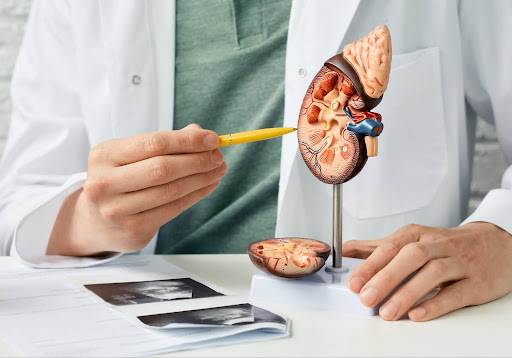
With so many doctors and specialists out there, it can sometimes be difficult to distinguish who you should see if you develop certain medical problems. Though your primary care physician can help refer you to the right specialist for your condition, having knowledge of specialties and medical fields can help expedite your diagnosis and treatment. Urology is a field of medicine that focuses on disorders in both the male and female urinary tract, as well as conditions involving male sex organs. Your urinary system works to regulate wastes found in your urine and can run into problems just like any other system in the body. When it comes to problems that arise in your urinary system, including your kidneys, bladder, ureters, and urethra, it’s best to consult a urologist. For a more detailed breakdown of how a urologist can help you, we’re focusing on some of the most common urologic problems.
Incontinence
Urinary incontinence is a common urologic problem that affects an estimated 25%-33% of American adults.
There are a number of different types of incontinence that urologists can help diagnose and treat, including:
Urge: Urge incontinence occurs when there is an urge to urinate so strong that leakage occurs before making it to the toilet.
Stress: Stress incontinence is another form of incontinence that leads to urine leakage. Stress incontinence occurs when muscles that work to support the bladders and regulate urine release are weakened.
Erectile Dysfunction
Erection quality decreases with age eventually affects all men. Treatments include oral medications, injection medications, penile shockwave (to encourage new blood vessel growth), and prosthetic surgery.
UTIs
While erectile dysfunction is a common urologic problem for men, persistent or recurring urinary tract infections are one of the most common urologic problems for women. In fact, 60% of women will experience a UTI at least once in their lifetime. UTIs occur when bacteria travels into the urinary tract and can cause a painful, burning sensation while urinating. Frequent or severe infections can indicate dangerous but correctable problems.
Kidney Stones
Kidney stones occur when a build-up of chemicals in the urine crystalize and form a solid object in the kidneys. Kidney stones can vary in size, with some being as small as a grain of sand and others larger than a golf ball. Symptoms and treatment generally depend on the size of the stone. Smaller stones have a high chance of passage with medications alone. Larger stones may require shockwave lithotripsy, endoscopic surgery, or more major surgery if severe. Urologists also focus on stone prevention and surveillance to lowering the risk of recurrence.
Overactive Bladder
Overactive bladder is defined by a problem with urine storage in the bladder that leads to the involuntary loss of urine due to a strong, sudden urge to urinate. Overactive bladder can be caused by other common urologic problems including UTIs or bladder stones, but may also be caused by neurological disorders, diabetes, or simply old age.
Pelvic Floor Dysfunction
Pelvic floor dysfunction is a broad category that can include urinary and bowel disorders, pain syndromes. No matter what may be the cause of pelvic floor dysfunction, pelvic floor therapy may be able to help. Pelvic floor therapy works to reduce stress on the pelvic floor muscles to ease urination and reduce pain. Larger Urology practices have specialized physical therapists on-site to help alleviate these symptoms.
Prostate Problems
Benign Prostatic Hyperplasia: Benign prostatic hyperplasia is a common urologic problem in men as the age. It is usually manifest by progressive urinary urgency, frequency, and weakness of the urine stream. Severe cases can lead to permanent damage to the kidneys and bladder. Treatments range from oral medications, office procedures (such as Rezum or Urolift), or surgeries (transurethral resection, holmium laser enucleation, robotic simple prostatectomy).
Prostate Cancer: Prostate cancer is one of the most common cancers among men, but is also one of the most treatable. The best way to treat prostate cancer is by early detection. It is recommended that men who are 50 to 70 years of age to be screened for prostate cancer. Men with a family history are screened even earlier.
Make an Appointment
For the diagnosis and treatment of any common problem related to the genitourinary system, schedule an appointment with one of our providers. Our team has years of experience treating issues relating to the urinary tract, male infertility, pelvic floor dysfunction, and more. You can call Alliance Urology Specialists in Greensboro at (336) 274-1114.

